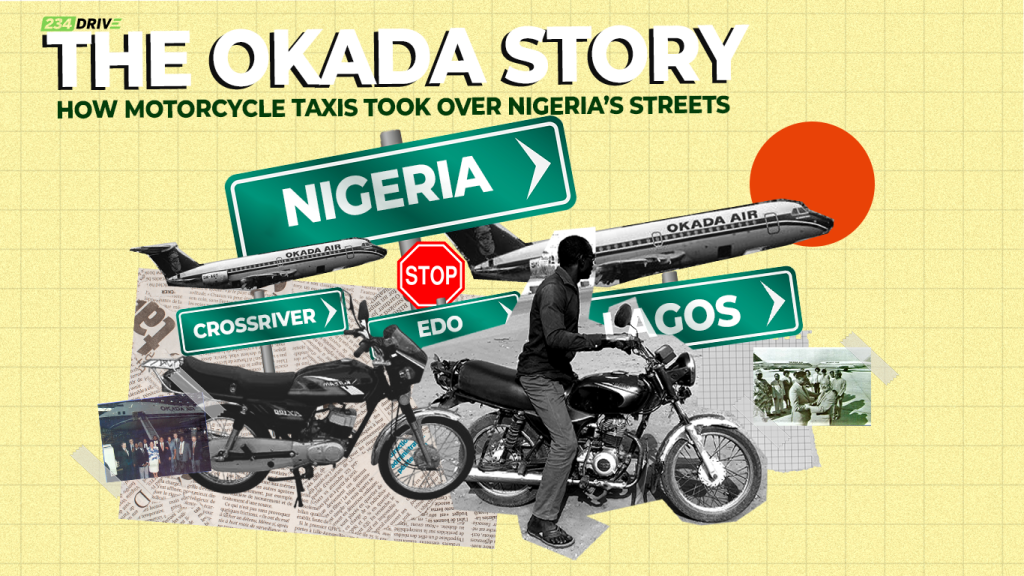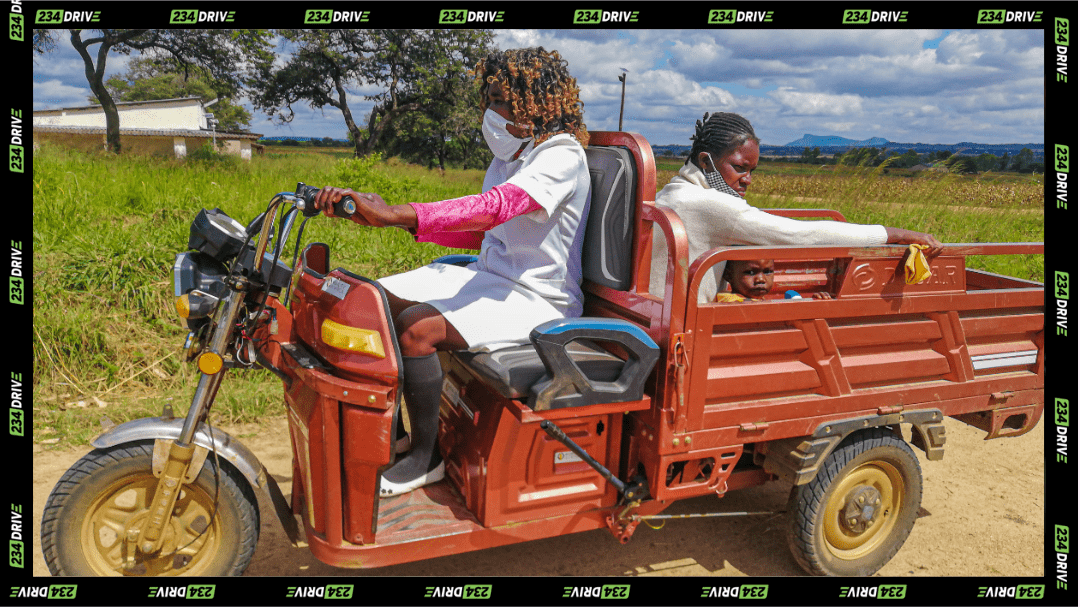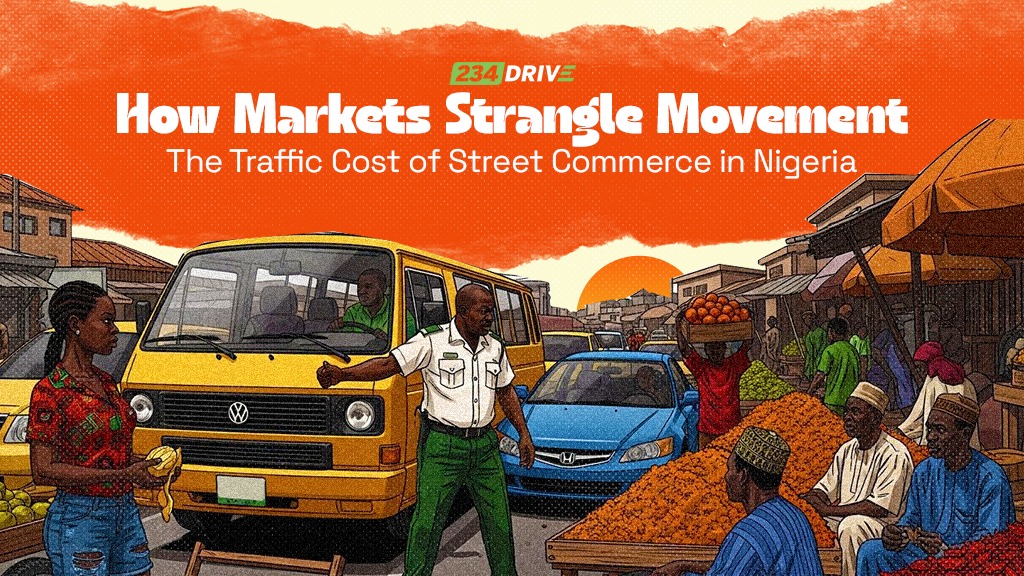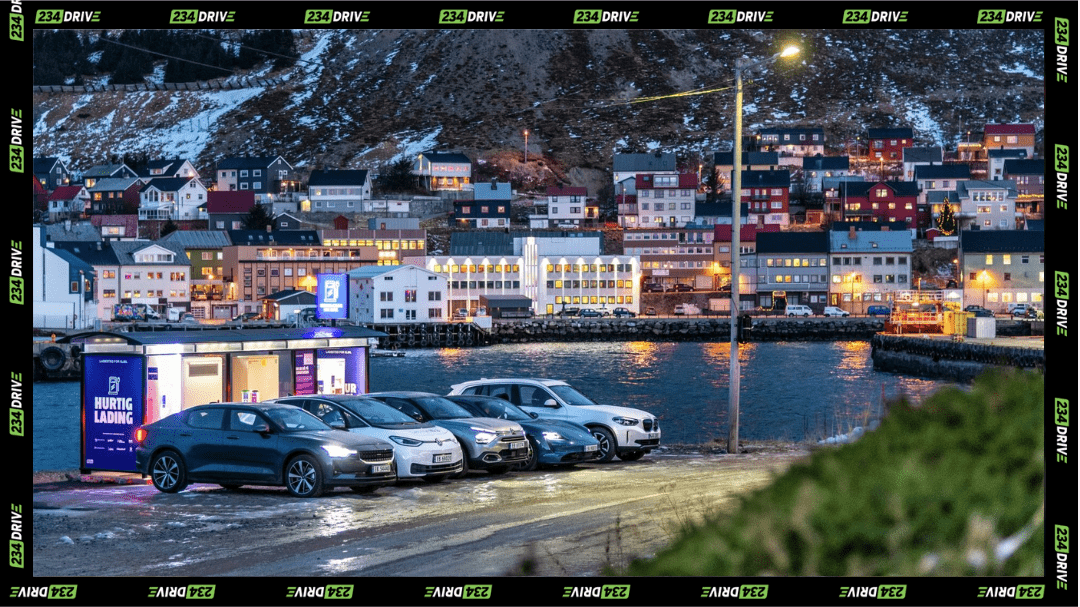If you’ve ever found yourself stranded in a Lagos traffic jam, you’ll understand why the okada exists. Commercial motorcycles, steered by often daredevil riders, manoeuvre through the tightest spaces, ferrying passengers from point A to B with a speed that defies the chaos around them. What started as an unusual addition to Nigeria’s transport scene in the 1970s has become a cornerstone of mobility, so much so that the word ‘okada’ was part of the Nigerian English words added to the Oxford Dictionary in 2020.
Today, there are over 8 million okadas vrooming through Nigeria’s streets. But how did this two-wheeled solution become such an integral part of public transport in Nigeria, and where did it get its unusual name from? Let’s dive into the origin story of the okada in Nigeria.
How It All Began: A Gap in the System
Motorcycle taxis first gained ground in the early 1970s in Cross River State, South-South Nigeria. Around the same time, they appeared in parts of the North, where they were—and still are—referred to as ‘Achaba’. However, it was not until the late 1970s that they began to spread to Lagos, particularly in Agege. Their rise was fuelled by the economic hardship of the late 1980s, brought on by President Ibrahim Babangida’s Structural Adjustment Programme.
With unemployment soaring, motorcycles offered young Nigerians a way to earn a living. They could easily be imported from Asian countries and had little barriers to entry for drivers. They also provided an answer to another pressing issue: the shortage of affordable and reliable transport. Where narrow and poorly maintained roads, high motor taxi fares and overcrowded buses left gaps, motorcycle taxis slipped through with ease. They connected rural areas to cities and allowed city dwellers to cut through the thickest of traffic. Consequently, they quickly gained traction and spread across the whole country.
When the Motorcycle Became the Okada
The name ‘Okada’ has some rather unexpected origins. It traces back to Okada, a town in Edo State and the hometown of Chief Gabriel Osawaru Igbinedion, a business magnate who enjoyed immense success throughout the 80s and 90s. Among his ventures was Okada Air, a pioneering private airline he established in 1983. With an impressive fleet of over 20 aircraft servicing both local and international routes, Okada Air became synonymous with speed, accessibility and reliability.
Concurrently, motorcycle taxis were gaining a lot more ground. For many lower-class Nigerians, flying on an Okada Air plane was out of reach. But what was within reach was the super-fast motorcycle taxi which could fly over obstacles buses and motor taxis couldn’t, much like Okada Air served routes other airlines at the time didn’t. Hence, the motorcycle taxi earned the name ‘Okada’. While the airline was short-lived, ceasing operations in 1997, the name ‘Okada’ has stuck as the nickname for the multitude of motorcycle taxis traversing Nigeria’s streets. Today, you’d be hard-pressed to find a Nigerian who hears ‘Okada’ and thinks of a plane.
Freedom with a Side of Danger
As okadas grew in popularity, they also drew a lot of criticism. The unregulated nature of the sector means that many Okada drivers have little to no formal training and are prone to reckless driving. Moreso, many drivers see wearing helmets, both for themselves and for their passengers, as a suggestion. This has made okadas a rather unsafe means of transport.
Over the years, government reactions have oscillated between reluctant acceptance and outright bans. More recently, in September 2022, the Lagos government banned okadas, leaving thousands of drivers without jobs. Nonetheless, the ban was not completely unfounded, considering that just in the first quarter of that year, motorcycle taxis accounted for nearly 50% of the road accidents in the megacity.
Okada bans have also taken place in other states like Delta and Niger in recent years. However, these bans are often met with resistance. For instance, in Lagos, okadas are still very much operational on smaller streets and in residential areas. Passengers continue to board these bikes, fully conversant with the risks, because they are often simply the most practical mobility option.
The East African Cousins: Boda Bodas
Nigeria is not alone in its motorcycle taxi culture. In East Africa, particularly in Uganda and Kenya, the ubiquitous boda bodas serve a similar role. Much like in Nigeria, the popularity of this public transit option can be attributed to factors like low barriers to entry for drivers, cheap imports from Asia, and high youth unemployment levels.
The name ‘boda boda’ originated from smuggling operations at the Uganda-Kenya border in the 1980s, where cyclists swiftly ferried contraband from ‘border to border’. Regular bicycle transporters soon co-opted the term ‘boda boda’ as a proud nod to their speed and expertise. When motorcycles entered the scene, they quickly phased out bicycles as they offered even greater speed and endurance. The name stuck, and today ‘boda boda’ is synonymous with fast, nimble transport.
Boda bodas are now an essential in metropolises like Kampala and Nairobi— where they are more popularly known as piki pikis or simply Boda. And just like with okadas, authorities regularly grapple with how to regulate a service that grows faster than the infrastructure around it.
Outside of Africa, some versions of the okada as cheaper transport options also exist in countries like India, China, Vietnam and Brazil. In fact, in India, motorcycle taxi drivers are referred to as ‘pilots’ and they are required to be licensed.
Technology and the Modern Okada
Before the Lagos okada ban in 2020, companies like Gokada, OPay (with ORide) and MAX had embarked on a mission to digitise the okada industry. Even Uganda’s SafeBoda entered the Nigerian market, launching operations in Lagos and nearby Ibadan. These startups introduced ride-hailing apps, mandatory safety training, branded helmets and jackets, hoping to make okada rides safer and more reliable. These platforms attracted significant investment and briefly changed the way many Nigerians thought about motorcycles.
However, the February 2020 ban, which restricted okadas from operating in key areas in Nigeria’s commercial capital, brought these ambitions to a halt. Gokada and its counterparts were forced to rethink their business models almost overnight. Rather than disappear completely, they pivoted; the bikes were rebranded from passenger transport to logistics vehicles.
Today, motorcycles are the beating heart of Nigeria’s courier and food delivery economy. Services like Chowdeck and Glovo rely heavily on motorbike riders to fulfil fast food deliveries across crowded cities. This adaptation, it seems, the authorities, have no problem with. And rightfully so, considering even in more developed climes, motorcycles are an integral part of the logistics sector.
Engines That Keep Nigeria Moving
Okadas are more than a way to dodge traffic. They are an answer to a system that often leaves people behind, filling the gaps left by overstretched public transport and underfunded infrastructure. While the government is right to be concerned about the safety of its citizens, the real answer lies in careful regulation rather than complete prohibition.
Okadas have proven time and time again that they are here to stay. And for as long as there is ground to cover and dreams to chase, you can be sure there will be an okada ready to ride.










